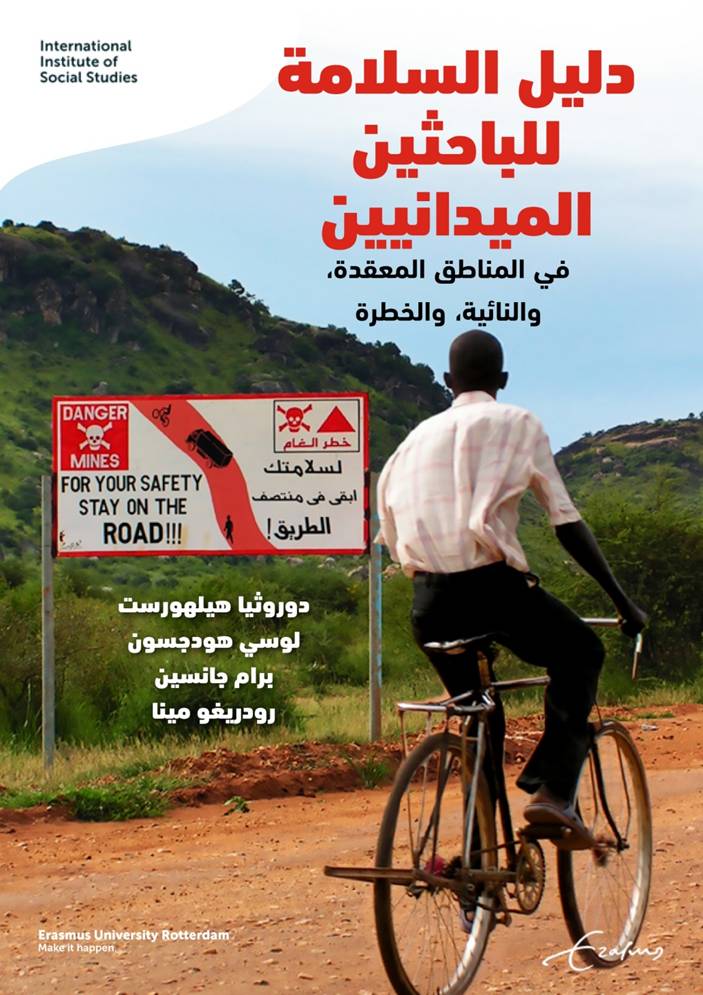On April 3, the Foundation was in London to attend the presentation of the Arabic version of the guide of security recommendations for researchers in complex, isolated or dangerous terrains (Fieldwork Research in Complex, Remote and Hazardous Places [1] ), published by the International Institute of Social Studies (ISS) of the Erasmus University Rotterdam.

This translation into Arabic was done by Refugee Rights Europe, a British human rights organization that conducts research on the situation of refugees and displaced persons in Europe.
After the French version supported by the French Red Cross Foundation and published last year, this new version will offer even more researchers a valuable tool for their work in complex places.
On the occasion of the presentation of the French version of the guide, in August 2018 at the 5th conference of the International Humanitarian Studies Association (IHSA) in the Netherlands, Marta Welander, director of Refugee Rights Europe, recognizing all the interest of the manual, had proposed to support in turn this translation to a new language, Arabic.
Eight months later, the version was presented by Marta Welander and Nahzley Anvarian, coordinator of Refugee Rights Europe, at the University of Westminster in London, in the presence of two of the authors of the guide, Thea Hilhorst (Professor of Humanitarian Aid and Reconstruction at Erasmus University of Rotterdam and President of IHSA) and Rodrigo Mena (PhD student in humanitarian aid and disaster response at the same university), and the Foundation, represented by Vincent Léger, Research Officer.
The meeting, entitled “Fieldwork on the Ground: Supporting Local Researchers”, was first an opportunity for the authors to go back to the origins of the project, to explain the initial objective and for the Foundation to recall what had encouraged the French version and how useful it was for the researchers it supports.
It was also question of a possible follow-up to the process. In the context of a new edition of the manual, Thea Hilhorst and Rodrigo Mena have particularly emphasized the need to better take into account the particularity of local researchers, who are often thought to be at lower risk than others, so that’s not the case. Above all, the participants recalled the qualities of the guide, in what he fills a gap, but also that no guide can replace a training. A manual without training is useless. It is now necessary to work to disseminate the various versions of the guide as much as possible and to encourage universities to develop training courses on the theme of researchers safety. To this end, under the leadership of Thea Hilhorst, it was decided to create a “working group”, as already exists within IHSA, which would bring together all the participants in this meeting in London, with a view to continue exchanges on the safety of researchers.
To read the manual in the Arabic version or in the original English version, click here
To read the manual in French, click here
To know more about IHSA, click here
To have a look at the programme of the 5th Humanitarian Studies Conference, click here
[1] Hilhorst, D.J.M, Hodgson, L, Jansen, B.J, & Mena Fluhmann, R.A. (2016). Security guidelines for field research in complex, remote and hazardous places. The Hague: International Institute of Social Studies. This handbook was created as part of the research program “When Disasters Meet Conflict”, funded by the Netherlands Organization for Academic Research (NWO).





